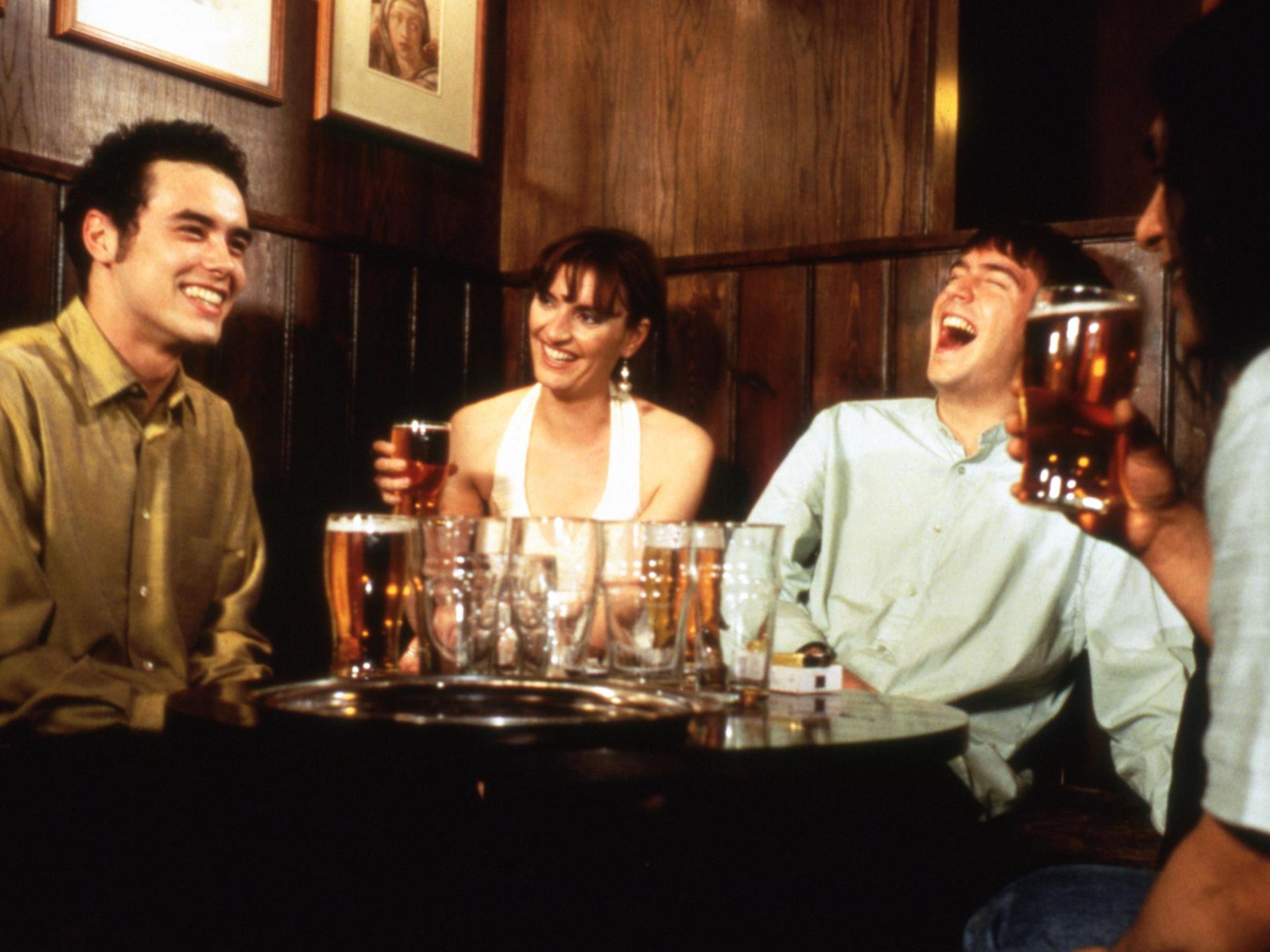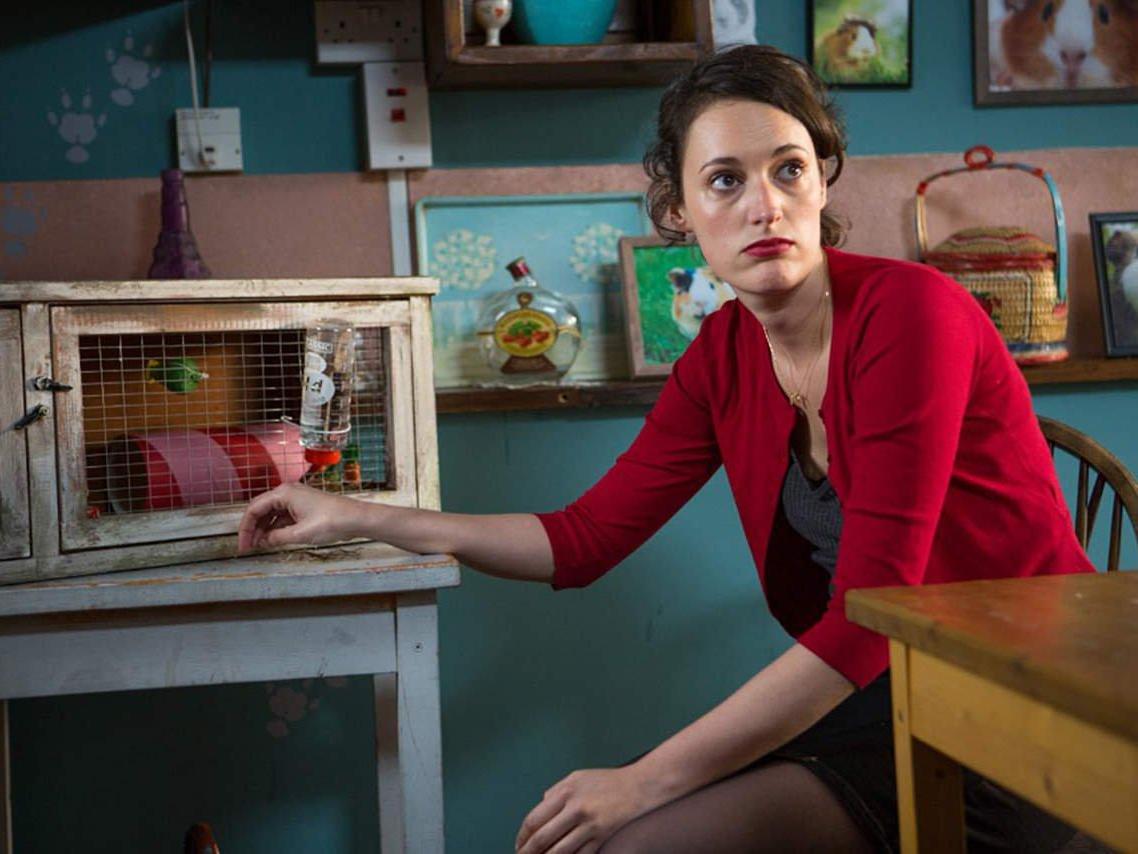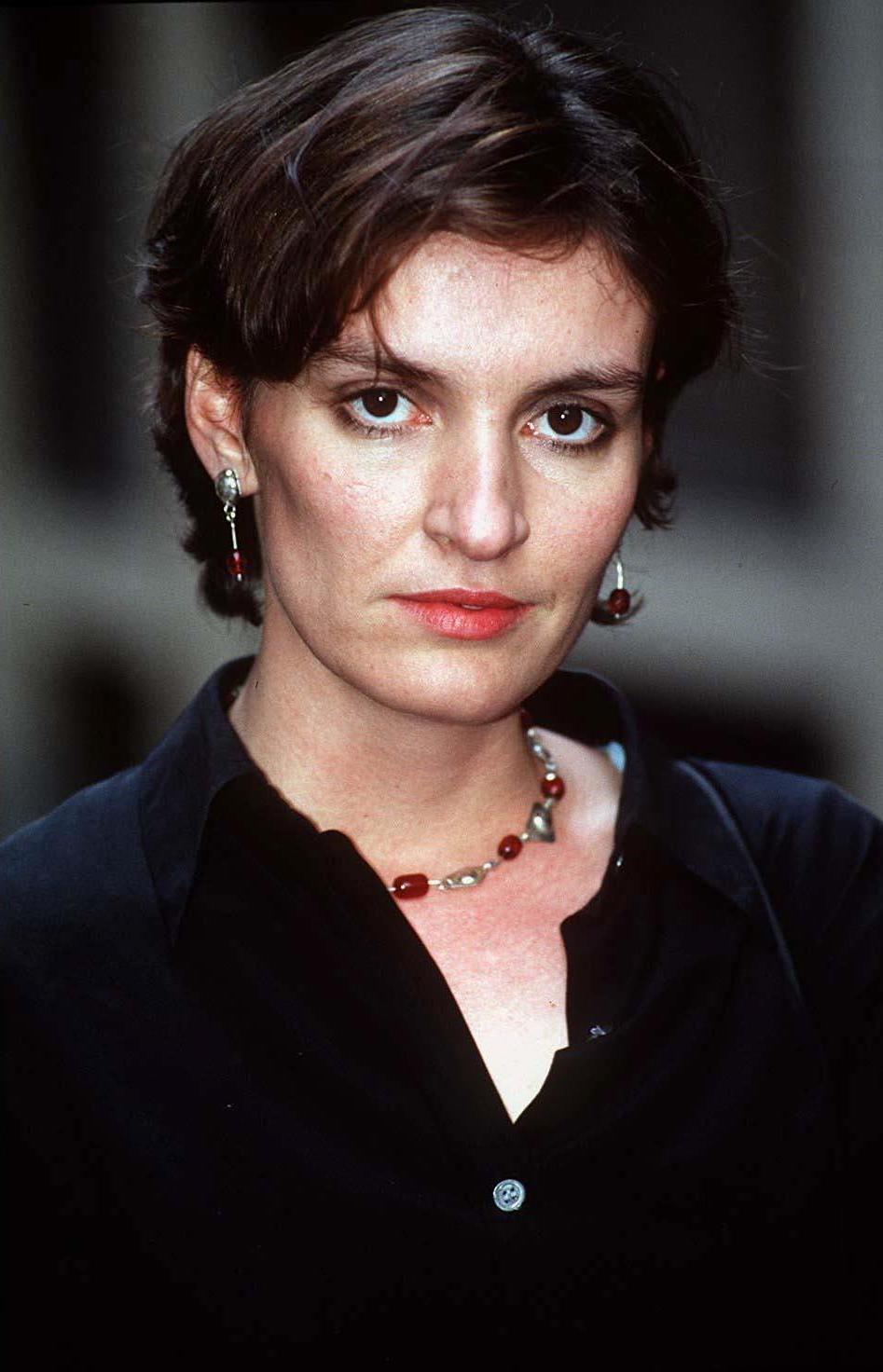Why modern comedy owes a huge debt to Nineties drama ‘This Life’
The flat-sharing twentysomethings found truth and humour in adult themes, writes David Barnett, just like recent cult comedies ‘Fleabag’ and ‘Back to Life’


If Twitter had come along a decade earlier, I can guarantee that it would have gone into meltdown on the evening of 7 August 1997.
That, you see, was the night that Milly punched Rachel. At Miles and Francesca’s wedding. Right in front of everyone. Because Rachel told Egg that Milly had slept with her boss, O’Donnell.
We didn’t really have an internet to break in 1997, so instead we stared in dumb amazement for a second, then cheered from our sofas. It was the perfect end, after two seasons and 32 episodes, to what surely must be among the best telly of the Nineties – This Life.
A lot of contemporary television owes a debt to This Life, not least among them Phoebe Waller-Bridge’s Fleabag. Indeed, Waller-Bridge’s titular character looks and behaves a little like Daniela Nardini’s Anna from This Life – both are single twentysomethings, confident yet navigating car-crash love lives. Just like the rest of the ensemble cast who formed the backbone of this series.
This Life is essentially a house-share comedy drama. When it debuted in 1996, we kind of got the idea that it was going to be a British version of Friends, which then was pretty much at its peak as the epitome of Nineties aspirational TV. It even had a blonde character called Rachel. But This Life had none of the glossy homogeneity of Friends, and the situations were far from comedic.
The central concept was that a group of friends who had all just graduated from law school decided to share a house together in London while they embarked on their various fledgling careers. As well as Nardini’s Anna there was posh boy Miles, played by Jack Davenport, who went on to a successful big-screen career with the Pirates of the Caribbean films and The Talented Mr Ripley. Edgar Cooke, known to everyone as Egg, was the least ambitious of the bunch, who would rather be cooking or writing a novel or playing a football manager game on his PC than schlepping about in chambers. Egg was played by Andrew Lincoln, before he went on to be The Walking Dead’s chief zombie killer, Rick Grimes.
Since university Egg has been dating Milly, played by Amita Dhiri, who is driven and hoovers up all the ambition and wherewithal that her disaffected boyfriend can’t seem to summon. And the fifth housemate was Warren (Jason Hughes, who later starred in a long run of Midsomer Murders), gay, Welsh and troubled – one of the recurring devices used in the series was Warren, confiding in an always-unseen therapist.

Other characters came and went into the household, including Delilah, Miles’s drug-addict fling (between his on-off relationship with Anna), Kira, Warren’s cousin (Luisa Bradshaw-White, off EastEnders) and Ferdy, a motorcycle courier played by Ramon Tikaram (brother of singer-songwriter Tanita) who has a close encounter with Warren, but maintains that he’s straight. Oh, and then there was Natasha Little’s Rachel, because every series needs a proper baddie. Rachel, another trainee lawyer, was Milly’s bete noire, and the tension between them simmered throughout the second series until the explosive climax.
With this stage set, chaos ensued. There was drug-taking. There were fights. And there was sex. Lots and lots of sex. Everybody was having sex. Miles was having sex with Anna and then having sex with Delilah (until he thought he’d got Aids from her) then he got engaged to Francesca but still had sex with Anna in her bed while Francesca was upstairs in his. Warren had sex with Ferdy but didn’t tell anyone because he hadn’t yet come out to his family. Anna had sex with her co-worker Jo and, somewhat hilariously, with Egg’s dad Jerry, who came to stay with them when he got divorced from Egg’s mother. Among all these young people, Paul Copley’s Jerry was a delight, rediscovering his youth by taking ecstasy and shagging all night. In fact, the only people who weren’t really having sex were Egg and Milly, which sent Milly’s eyes wandering towards her much older, and married, boss, O’Donnell.
Younger readers might well be wondering what all the fuss was about. After all, smart comedies are almost ten a penny these days. BBC 3 is stuffed with them. Derry Girls, People Just Do Nothing, The Detectorists, Catastrophe, Back To Life and, of course, Fleabag. But back in the mid-Nineties, British TV comedy was in the embryonic stages of hauling itself out of the traditional Terry and June format that had held sway for so many years.
We had One Foot In the Grave, and Father Ted, and Keeping Up Appearances, and Absolutely Fabulous, and while some of these were great, they were all overtly played for laughs in the riotous, laugh-track, ridiculous British sitcom manner. Even when shows were nominally targeted at younger people, such as Men Behaving Badly, they still hove to the old sitcom formula. There was change in the air, but when This Life debuted in 1996, I’m Alan Partridge was still a year away, and The Royle Family wouldn’t come on to our screens until 1998.
Besides, This Life wasn’t a sitcom. But it wasn’t just a boring old drama either. It was a new thing, that was both funny and serious at the same time, and we hadn’t really seen its like before. That’s why it was so important.

TV was in a state of flux in the Nineties and This Life’s writer Amy Jenkins was perfectly placed to take advantage of that. The whole series came about thanks to a focus group project, with which the BBC tried to establish just what its identity was in this decade where everything seemed to be changing. People did focus groups a lot back in the Nineties, and they used the information gathered to paint sometimes abstract images of what a thing should or should not be. In this case, the survey asked respondents that if the two BBC channels were brands, what would they most be like?
The answer for BBC1 was Marks & Spencer, in that – just like the Nineties incarnation of the store – it was ubiquitous and trustworthy; the sort of place you’d be happy to get a televisual bra fitted that you knew was going to be of good quality and fit well. BBC2, on the other hand, was likened to Aquascutum.
Aquascutum is a venerable luxury clothing brand that describes its wares on its website today as “understated British style”. You don’t get much change from £600 for a trench-coat at Aquascutum. The BBC’s controller at the time, Michael Jackson, was not too enamoured with this comparison. He wanted BBC2 to be trendier, more accessible and slightly cooler than Aquascutum. He wanted more shows about young people and what they were doing in the mid-Nineties, which was essentially having sex, taking drugs, listening to Britpop, and trying to get ahead in professional jobs.
Amy Jenkins was born in 1966 and by the mid-Nineties had abandoned a career in law to try to get into TV writing. She’d been to a state comp and studied law at University College London, but after a year in her first job she – like Egg would do in This Life – abandoned it because she found it boring. She had written a script about young people enmeshed in rave culture and pitched it to the BBC. Her background in law brought her to the attention of Jackson, who realised the combination of her script and her experience was exactly what he was looking for to enliven BBC2’s output.
What Jenkins didn’t want to do, though, was write a courtroom drama. She took her cue from TV shows such as Hill Street Blues, which was about the American police but didn’t actually feature much police work – it focused on the private lives of the characters. Which is why there are hardly any – if, in fact, any – courtroom scenes in This Life. Work only matters for the characters because of the way it and the people there push and pull and alter the course of the cast’s lives.
British TV has always been weighted towards middle-class characters, and This Life was no different, in a way. By dint of all being university graduates who were embarking on careers in law, the characters were by definition middle class. But they were perhaps the emerging middle class – apart from minted Miles – rather than the progeny of, to choose a classic-style sitcom of a couple of years later – My Family. This Life was relatable for a lot of twentysomethings in the Nineties, especially those who were perhaps the first generation in their family to go to university, and to make a life away from their home town.
Jackson’s gut instinct that This Life was exactly what he was looking for was bang on. It eschewed traditional production values and opted for the shaky verisimilitude of hand-held camera filming techniques. There were no obvious gags or signposted jokes, instead finding humour through situations and real dialogue. And there was no intrusive soundtrack… music issued from stereos or TVs rather than overlaid on the footage. It felt real and grimy but for a generation of twentysomethings and late teens it was aspirational as well. Sure, we’d all say we’d like to live in the Friends apartment and drink coffee at Central Perk, but it sure looked a hell of a lot more fun getting blind drunk with Anna in a dingy London pub.
The first series in 1996 ran to 11 episodes, and then it came back in March 1997 for a 21-week run. We didn’t know that was going to be the end of it at the time; TV just happened and you watched it and you waited for someone to say there’d be more of it. But after all the tangled sub-plots started to become resolved, and Milly’s epic punching out of Rachel in the finale, we knew that This Life was over.
The postscript to the final scene (witnessed, joyfully, by Warren, who made a guest appearance in the closing moments after leaving to travel the world in episode seven of series two) showed the house they all shared, with a for sale sign on it. Apart from Milly smacking Rachel, nothing had actually been tidily resolved; Milly and Egg had split up because she slept with O’Donnell, Miles had married Francesca though he was in love with Anna, was Warren back for good or just a visit? But still, it felt like a satisfying end. Because This Life, like, well, this life, wasn’t meant to be all neatly tied up with a bow and everybody living happily ever after. We dropped in on everyone’s lives for a couple of years, then dropped out again, and there was nothing to suggest that this disparate bunch of dysfunctional young adults would suddenly get their shit together.
Except, they kind of did, a decade later. In January 2007 BBC2 broadcast This Life +10, reuniting the original cast with writer Amy Jenkins and executive producer Tony Garnett for a one-off, 90-minute special. If your curious, Milly and Egg got back together and had a child. Egg became a successful novelist. Miles is in the throes of his second marriage breaking down, and about to go bust. Anna is a barrister and yearns for a baby, but doesn’t want a man to go with it. Which is where Warren, helpfully, comes in (no pun intended). Oh and Ferdy has died, his funeral providing the backdrop for the reunion of the cast.
This Life +10 wasn’t actually bad, but it felt somewhat… unnecessary. I’ve sort of expunged it from my memories of the show, or at the very least decided that it actually isn’t a canonical sequel, in the same way that I don’t really thing the events of 1978’s Star Wars Holiday Special, in which everyone goes to celebrate a spacey sort of Christmas on Chewbacca’s home planet, actually happened in the context of the movies.
For me, This Life ended when the for sale sign went up on the house on Benjamin Street and the front door closed for the final time… yet, simultaneously, opened more doors and paved the way for a new generation of TV show to which today’s smash hits such as Fleabag owe a huge debt.
I still wish we’d have had Twitter when Milly decked Rachel, though…
Join our commenting forum
Join thought-provoking conversations, follow other Independent readers and see their replies
Comments
Bookmark popover
Removed from bookmarks